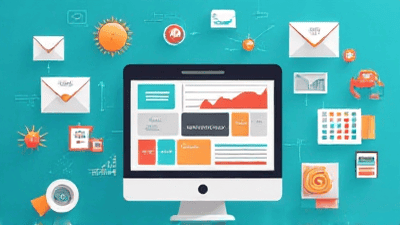
In today's rapidly changing job landscape, the concept of upskilling has never been more relevant. As technology continues to evolve and reshape industries, professionals must continuously adapt by acquiring new skills to stay competitive. Upskilling not only enhances career prospects but also fosters personal growth and boosts job satisfaction.
Understanding Upskilling
What is Upskilling?
Upskilling refers to the process of learning new skills or improving existing ones to enhance a professional's performance in their current role or prepare for future opportunities. This can involve technical skills, soft skills, or industry-specific knowledge. Upskilling is particularly important as job requirements evolve, and the skills needed today may differ significantly from those needed in the next few years.
Why is Upskilling Important?
The importance of upskilling can be attributed to several factors:
-
Technological Advancements: The rapid pace of technological innovation requires professionals to adapt and learn new tools, software, and methodologies.
-
Job Market Competition: With an increasingly competitive job market, possessing up-to-date skills can set candidates apart from their peers.
-
Employee Retention: Organizations that promote upskilling often see increased employee engagement, loyalty, and retention, as employees recognize investment in their personal and professional development.
-
Future-Proofing: Upskilling helps professionals remain relevant in their fields and prepares them for future job opportunities that may not exist yet.
Essential Skills for the Modern Workplace
To thrive in the contemporary work environment, professionals should focus on developing the following essential skills:
1. Digital Literacy
In an age dominated by technology, digital literacy is a non-negotiable skill:
-
Understanding Software Applications: Familiarity with productivity tools such as Microsoft Office, Google Workspace, and project management software is essential for most roles.
-
Data Analysis: The ability to analyze and interpret data has become increasingly important. Skills in data visualization and tools like Excel, Tableau, or Google Analytics can provide a competitive edge.
-
Basic Coding Skills: While not everyone needs to be a software developer, understanding the fundamentals of coding can be beneficial, especially in roles such as marketing, product management, and operations.
2. Communication Skills
Effective communication is vital in any workplace:
-
Verbal Communication: The ability to articulate ideas clearly and confidently in meetings, presentations, and discussions is crucial for collaboration.
-
Written Communication: Strong writing skills are essential for crafting emails, reports, and proposals. Professionals should focus on clarity, conciseness, and proper grammar.
-
Digital Communication: Proficiency in digital communication tools (e.g., Slack, Zoom) and understanding etiquette in virtual environments are increasingly important as remote work becomes prevalent.
3. Emotional Intelligence
Emotional intelligence (EI) refers to the ability to understand and manage one's own emotions and those of others:
-
Self-Awareness: Recognizing your strengths and weaknesses can help you navigate workplace dynamics more effectively.
-
Empathy: The ability to understand and relate to the feelings of colleagues fosters better teamwork and collaboration.
-
Conflict Resolution: Professionals with high emotional intelligence can manage conflicts more effectively, leading to improved workplace relationships.
4. Adaptability and Resilience
The modern workplace is characterized by change and uncertainty:
-
Flexibility: Being open to change and willing to adjust plans or strategies as necessary is crucial for success in dynamic environments.
-
Problem-Solving: The ability to think critically and creatively to find solutions to challenges is a highly valued skill.
-
Resilience: Developing coping strategies to handle stress and setbacks is essential to maintain productivity and well-being.
5. Collaboration and Teamwork
Most modern workplaces emphasize collaboration:
-
Interpersonal Skills: Building positive relationships with coworkers contributes to a productive work environment.
-
Diversity and Inclusion Awareness: Understanding and appreciating diverse perspectives fosters an inclusive workplace culture.
-
Remote Collaboration: Proficiency in tools that facilitate teamwork in a virtual environment (e.g., Trello, Asana) enhances collaboration among remote teams.

Strategies for Upskilling
Once you've identified the essential skills you wish to develop, the next step is to implement effective upskilling strategies:
1. Identify Your Goals
Before embarking on the upskilling journey, take time to establish clear goals:
-
Assess Your Skills: Conduct a self-assessment to identify your strengths and areas for improvement.
-
Define Career Objectives: Consider where you want to be in your career in the next few years. Identify skills that will help you reach those goals.
2. Leverage Online Learning Platforms
The rise of online learning has made it easier than ever to acquire new skills:
-
Coursera, Udemy, LinkedIn Learning: These platforms offer a wide array of courses on various subjects, from technical skills to soft skills.
-
Micro-Credentials: Consider obtaining certifications or micro-credentials that validate your skills in a specific area.
3. Attend Workshops and Webinars
Hands-on experiences can significantly enhance learning:
-
Industry Conferences: Attend conferences and workshops to stay updated on industry trends and best practices while networking with peers.
-
Webinars: Many organizations host webinars that offer valuable insights and training on specific topics.
4. Seek Mentorship
A mentor can provide guidance and support in your upskilling journey:
-
Find a Mentor: Look for someone within your organization or industry who possesses the skills you'd like to learn. A mentor can offer insights, advice, and valuable feedback.
-
Participate in Networking Events: Engage with professionals in your field to create relationships that may lead to mentorship opportunities.
5. Practical Application of Skills
Applying new skills in real-world scenarios reinforces learning:
-
Take on New Projects: Volunteer for new assignments or projects that require you to use or develop your newly acquired skills.
-
Collaborate with Colleagues: Work with others on team projects to gain practical experience and feedback.
6. Regularly Review Progress
Monitoring your progress is essential for effective upskilling:
-
Set Milestones: Break your goals into smaller, achievable milestones. Celebrate your successes along the way.
-
Seek Feedback: Request feedback from peers and supervisors regarding your performance and improvement in specific areas.
Conclusion
Upskilling is no longer an optional endeavor; it is a necessity for professionals seeking to thrive in the modern workplace. By understanding the essential skills required and implementing effective strategies for continuous learning, you can enhance your career prospects, increase job satisfaction, and future-proof your career.
In a world characterized by rapid change and innovation, embracing a mindset of lifelong learning will not only help you succeed professionally but also cultivate personal growth. As you embark on your upskilling journey, remember that every step taken toward acquiring new skills is an investment in your future self.



